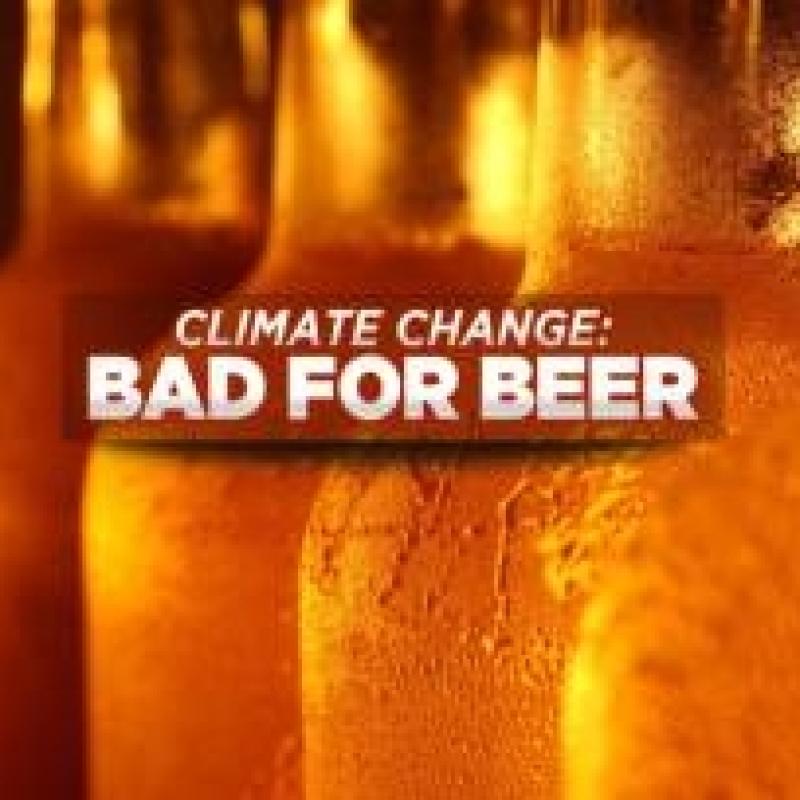The Scientists Trying to Save Beer from Climate Change


A warmer, drier future is coming for our hops. Luckily, these folks have developed a nice little workaround, thanks to a gene-editing tool that could help create a hop-free beer.

This shouldn’t come as a surprise, but climate change is going to mess with some of our most beloved foods. Prolonged drought, hotter temperatures, and stronger storms will deliver punch after punch to farmers around the globe. In fact, we’re already seeing the effects on some crops: a 2011 Stanford study found that corn yields around the world were down about 5 percent because of hotter temperatures fueled by climate change.

In the quest to understand how we can save beer from climate change, last year we wrote about botanists foraging for indigenous strains of American hops. These scientists believed that wild hop strains might bring additional drought- or heat-tolerant genes to our commercial hop crops. But now a pair of scientists from the UC Berkeley want to do away with hops entirely.
The idea was simple, at least in theory: Get yeast, which are living organisms that assist in the fermentation process, to make hop-like flavors, thus totally eliminating the need for real hops. Using CRISPR-Cas9, a gene-editing tool, researchers Rachel Li and Charles Denby inserted four new genes—taken from mint and basil—into the DNA of brewer’s yeast. Li knew from previous research that mint and basil both contained linalool and geraniol, two molecules that help create the flavor and aroma she needed to make the Cascade variety of hops, which is the most widely used by craft breweries.
The real challenge, Li says, was picking the right strains of molecules to get the hoppy qualities she wanted without sacrificing yeast performance. After all, you still need the yeast to do its fermentation thing and produce those lovely yeasty notes. It took about three years to get that process totally right.

That’s just the start. Li and Denby are now starting a commercial yeast operation, called Berkeley Brewing Science, where they develop and sell hop-flavor-producing yeasts to brewers across the country. Their original work was focused on producing a flavor similar to Cascade hops, but they’re also interested in trying other varieties. “One thing we are beginning to learn is that combining flavor molecules from hops in different ratios provides access to a much wider variety of flavors,” Li says. “We think that using hops for brewing has just scratched the surface of what flavors can be made by varying combinations and concentrations of hop flavor molecules.”
While she and Denby don’t want to completely render hops obsolete, they do hope to provide commercial brewers with a more eco-friendly, less water-intense option without sacrificing taste. “It’s another tool brewers can use,” Li says.





I'm an IPA guy. IPA without hops is... difficult...